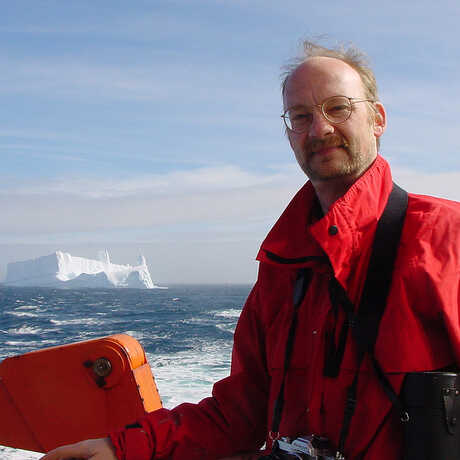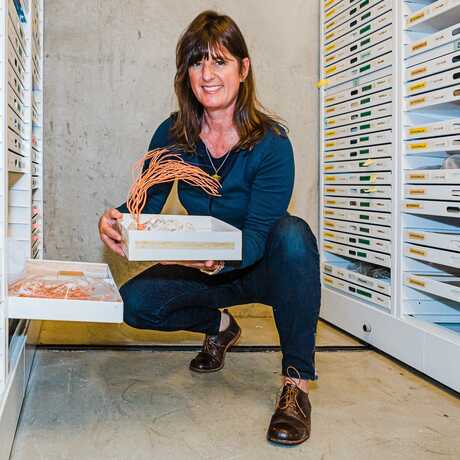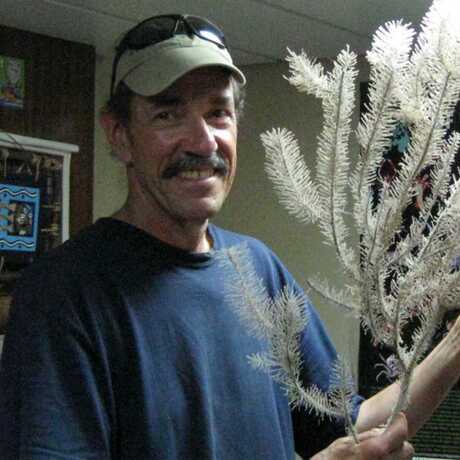When I was about 8 years old, I sat at the kitchen table and used a blue ballpoint pen to draw the "blueprints" for the research vessel I would be using when I became a marine biologist. Things don't always go the way you plan--even when you start early. But I can say that my life as a field biologist and phylogeneticist of marine organisms has never wavered from the exciting endeavor represented by those childhood sketches.
Chrissy Piotrowski manages care and maintenance of the Academy's vast and taxonomically diverse Invertebrate Zoology Research Collection (excluding entomology specimens). She oversees CASIZ collection-related activities and documentation including acquisitions, curation, taxonomic determinations, specimen loans and exhibit, researcher visits, data inquiries, and maintenance of an online searchable database of digital specimen records.
I am the Curator of Geology, and I've been at the Academy since 1999. I hold degrees in Biology (B.Sc.), Oceanography (M.S.) and Geology (Ph.D.). My research is transdisciplinary, with a focus on understanding the evolution of ecological systems, emphasizing paleontology, deep time, and perspectives on complexity dynamics. Most of my research these days centers around global change biology, and how we can further develop our understanding of Earth's past ecosystems to better forecast our future.
Research interests include the systematics and evolutionary biology of octocorals (soft corals, gorgonians, and pennatulaceans), which comprise 65% of all coral species diversity. Fieldwork is currently focused on two bathymetrically opposite regions of the world's oceans: coral reefs of the tropical western Pacific (the Philippines, Melanesia, and Micronesia), and the deep-sea benthos (particularly the west coast of North America and various deep ocean basins worldwide).



